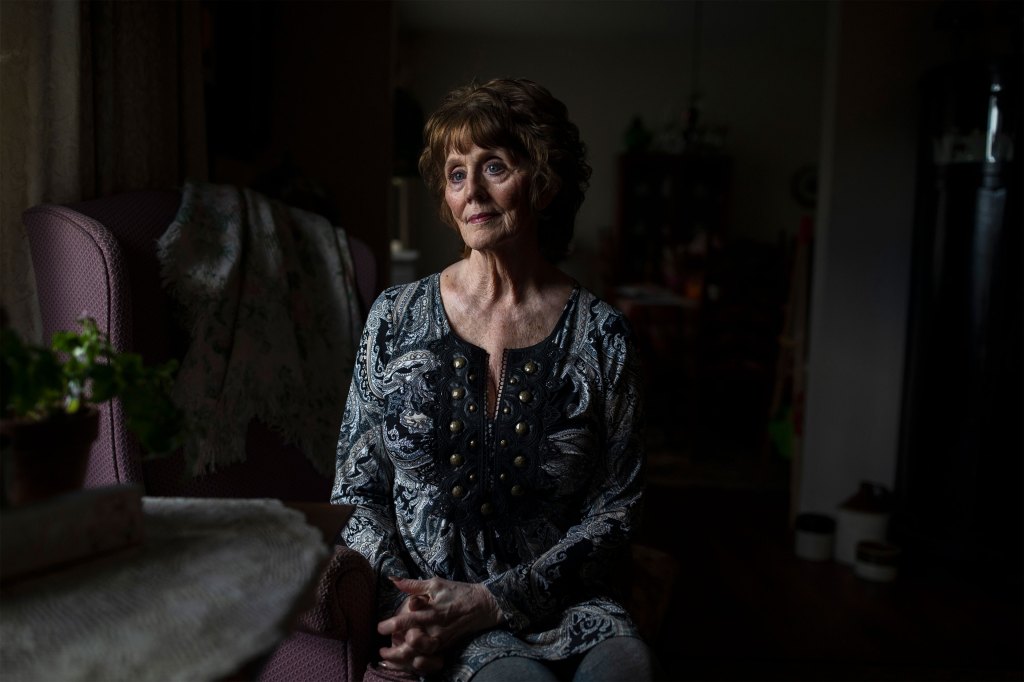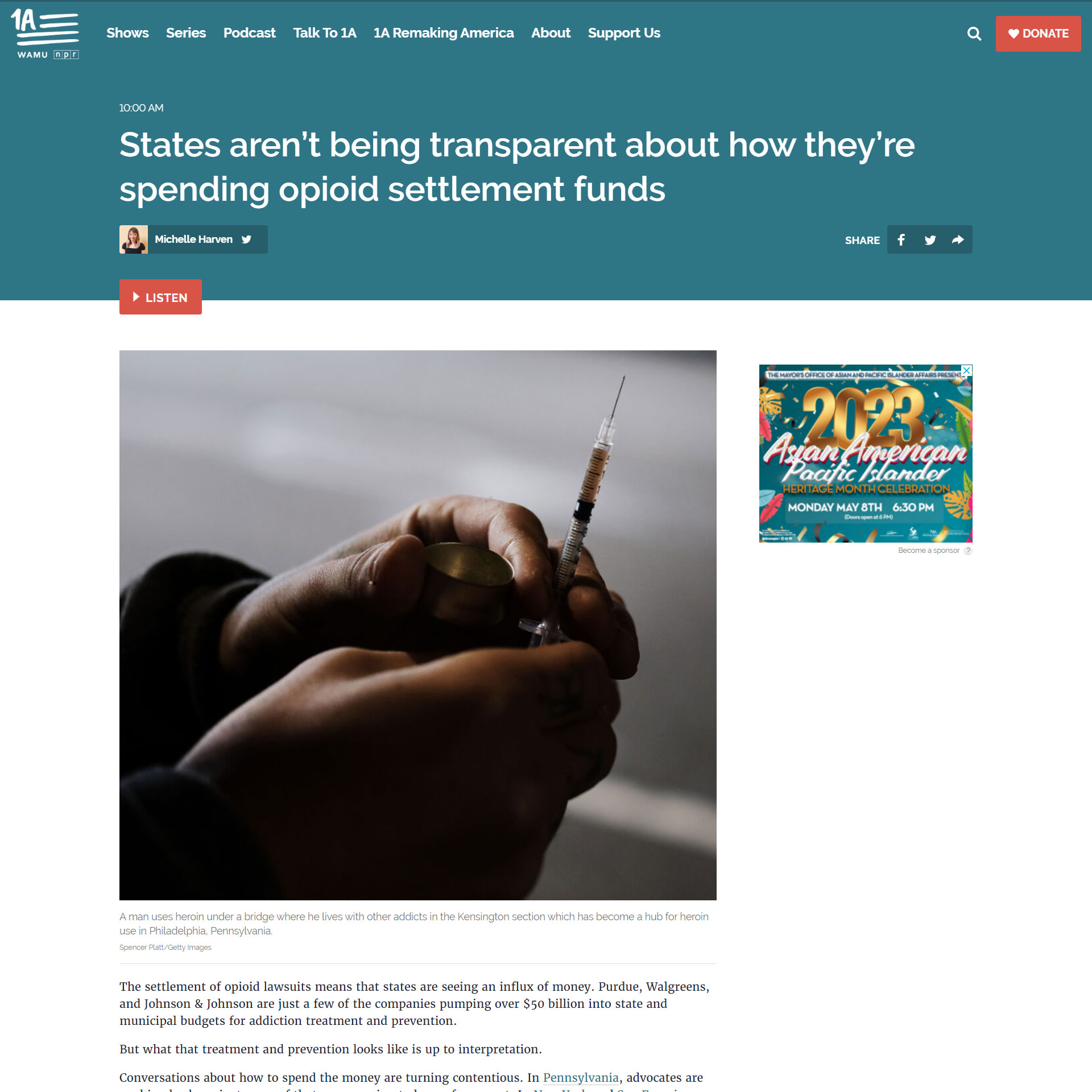Listen to the Segment
KFF Health News senior correspondent Aneri Pattani appeared on NPR’s “1A” on May 1 to discuss opioid settlement money and what people need to know to hold their governments accountable. She was joined by three people featured in her previous reporting.
Listen to the Segment on 1AOpioid painkillers have left millions of Americans addicted or dead over the past three decades. Now, state and local governments are receiving more than $50 billion in settlement funds from the companies accused of aggressively promoting those medications. Many people see the money, which will be distributed over the next 15 years, as an opportunity to transform the country’s addiction treatment landscape.
But many states aren’t being transparent about where dollars are going, and others are facing contentious battles over what should be funded. Although most of the settlements require states to spend the bulk of the money on addiction treatment and prevention, defining those concepts often depends on geography and politics.
KFF Health News senior correspondent Aneri Pattani appeared on NPR’s “1A” on May 1 to discuss these critical issues and what people need to know to hold their governments accountable. She was joined by three people featured in her previous reporting: Jackie Lewis, a mother and grandmother personally affected by the opioid epidemic; Christine Minhee, founder of OpioidSettlementTracker.com; and Cara Poland, an addiction medicine doctor and chair of Michigan’s Opioid Advisory Commission.

